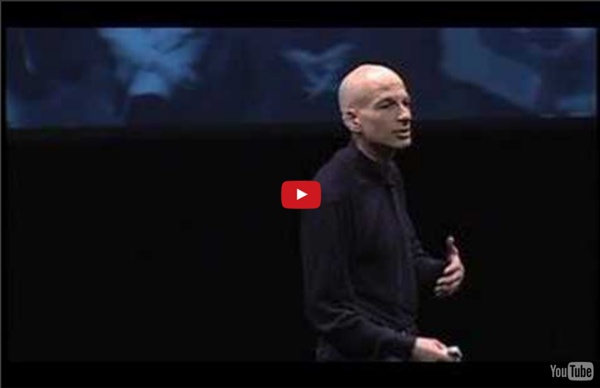



‘Kijk naar jezelf, voordat je je klant zoekt’. Als senior coach en trainer heb ik de laatste 18 jaar succesvol organisaties veranderd, managers gecoacht, trainingen ontwikkeld en gegeven. En heb gemerkt dat de concurrentie van coaches volledig uit de hand liep. 40.000 coaches in Nederland, 700.000 werklozen en steeds meer zzp-ers. Daardoor ontstond voor mij de vraag: hoe laat ik mijn klant (en die had ik al jaren, dus: mijn nieuwe klant) zien dat ik besta? Uit pure ergernis over al die trainers, die marketing verkopen en iedereen gouden bergen beloven, ben ik op onderzoek uitgegaan. Mijn belangrijkste conclusie is dat ‘Ik’ het verschil ben met alle andere coaches. Mijn professionele Ik als merk benaderen. De Cappuccinocoach; aanleiding was de stap creëer je merk (wat voor uitstraling past bij jou?) Met o.a. op LinkedIn een bijpassend profiel, met benoemde expertises, aanbevelingen en onderschrijvingen, gevolgde opleidingen,trainingen, een opsomming van werkervaring (en inhoudelijke info) en What you see is wat you get.
Albert Bandura Albert Bandura (born December 4, 1925) is a psychologist who is the David Starr Jordan Professor Emeritus of Social Science in Psychology at Stanford University. For almost six decades, he has been responsible for contributions to many fields of psychology, including social cognitive theory, therapy and personality psychology, and was also influential in the transition between behaviorism and cognitive psychology. He is known as the originator of social learning theory and the theoretical construct of self-efficacy, and is also responsible for the influential 1961 Bobo doll experiment. A 2002 survey ranked Bandura as the fourth most-frequently cited psychologist of all time, behind B. In 1974 Bandura was elected to be the Eighty-Second President of the American Psychological Association (APA). Personal life[edit] Bandura was born in Mundare, in Alberta, a small town of roughly four hundred inhabitants, as the youngest child, and only son, in a family of six. Post-doctoral work[edit]
Marketing Personal branding, een stappenplan Personal Branding, een stappenplan Acquireren niet meer zonder social media kan. Om werk, klanten te krijgen moet je kunnen vertellen waarom ze jou moeten nemen. Het antwoord op deze vraag beantwoord je met je Personal Brand. 1. Profiel (LinkedIn, Facebook,Google+) Wie ben Ik? Passie en persoonlijkheid zijn belangrijke elementen.mijn professionele Passie/Drivemijn kernwaardenmijn zelfbeeld als professional Mijn kennis en kunde. mijn opleiding(en)mijn vaardigheden en competentiesmijn professionele ervaring Mijn toegevoegde waarde USP. 2. Je persoonlijke relaties – Wat vinden/zeggen je vrienden van je? 3. Je markt- benoem je doelgroepJouw aanbod- bied persoonlijke producten en diensten aan doelgroep aan.Jouw stijl- ontwikkel en plan je uitstraling en communicatie. 4. Emoties en woorden – kies een naam en motto dat jouw karakteriseert en makkelijk te onthouden isEmoties en beelden – kies je kleuren en logo die jouw en je werkzaamheden uitstralen/representeren. 5. 6. 7. 8. 9. About the Author
Can you clearly articulate the impact of your work? 04 May In General by peterwinick Tags: article marketing, attraction marketing, Author, b2b marketing, blog marketing, Business, content marketing, how to market a book, Management, market a book, marketing blog, product marketing, Strategy, Thought leader, thought leadership I’m often confused when talking to authors and thought leaders when I ask them to tell me how their work impacts the lives and businesses of their clients. Many times they’ll immediately dive into a thorough explanation of models, processes and the latest iteration of the work they do. Other times I’ll get an update on research they’ve done that further validates a theory they’ve had or a new theory that they are focusing on. There’s often a gap between what is of interest to the thought leader and the needs of a client or prospect.
Solliciteren 2.0: let op je online reputatie Uit onderzoek van de online vacaturesite Stepstone blijkt dat bijna driekwart van de bedrijven gebruik maakt van social media bij het kiezen van een geschikte sollicitant. De online uitstraling van een kandidaat via LinkedIn, Facebook en Twitter kan hierdoor zijn of haar kansen bij een potentiële baan zowel positief als negatief beïnvloeden, zo wijst het onderzoek uit. Marketing manager van StepStone Mirjam Aardoom raadt daarom alle werkzoekenden aan om geregeld hun online sporen na te lopen: “Werkgevers zullen steeds vaker eerst het online profiel controleren voordat ze een kandidaat uitnodigen”. Voor sollicitanten die het risico van een negatief beeld uit social media willen beperken: check de privacyinstellingen van je verschillende accounts.
Skillshare Class: Getting Press on a Tight Budget Join me for an overview of public relations strategies to interact with journalists and ultimately gain press for your startup. What You'll Learn Concise Message and Pitch. What You'll Make After taking this course, students should understand the basics of engaging the press and be on their way to coverage. This class also includes a number of case studies from recent pitches that I have received from fledgling startups. De Cappuccino Coach | Maak werk van eigen merk